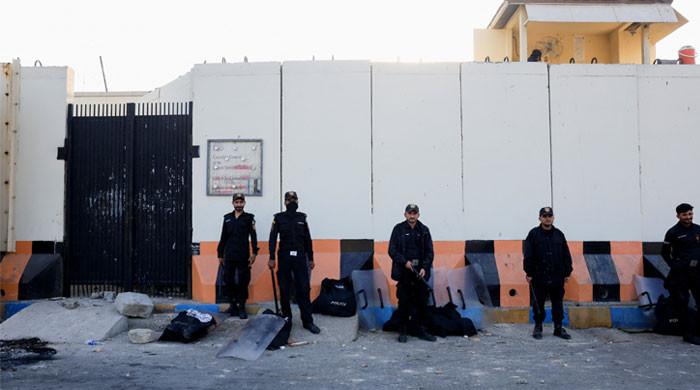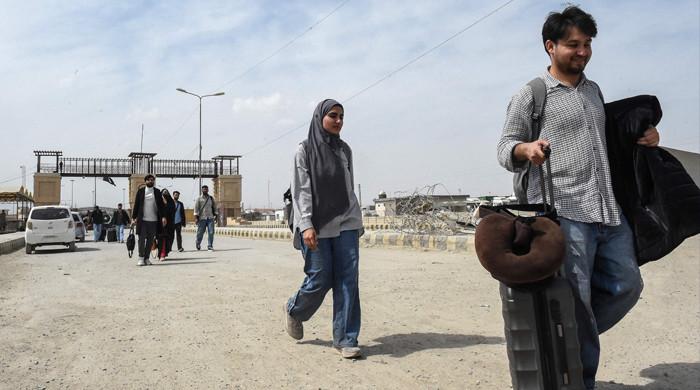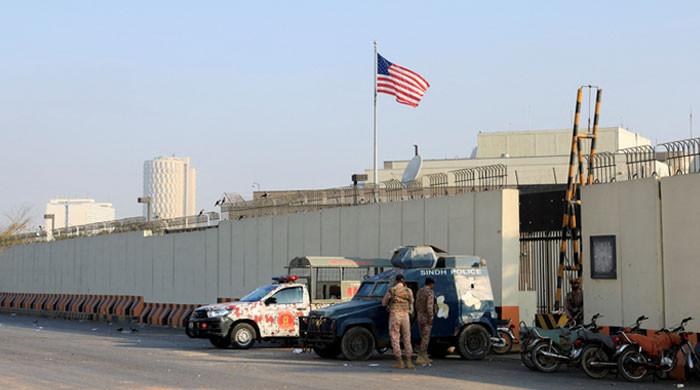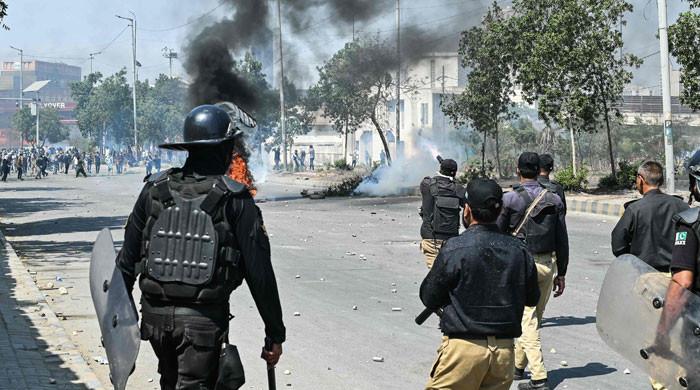Soybean dust caused respiratory illness incidence in Karachi: Sindh health department
A health advisory from the Sindh health department said soybean dust was the main reason for the respiratory illness incident that took place in Karachi a few days ago
February 19, 2020
KARACHI: The Government of Sindh's Health Department said Wednesday that soybean dust was the reason for the respiratory illness incident in Karachi that affected people, resulting in the deaths of more than 14 persons.
A health advisory issued by the provincial government said: "As per observations of experts and ICCBS report it is a form of severe Allergy which causes severe asthma attack in persons who come into direct contact with Soya Dust."
The advisory said that the soybean dust causes Anaphylactic Shock and death in persons who are already asthmatic.
Soybean unloading halted at Karachi port
Following the deaths of more than a dozen Karachi residents and scores being hospitalised due to air toxicity, unloading of soybean at Karachi Port was halted Wednesday morning as the same ICCBS report stated that soybean dust was the reason for the multiple deaths.
The report said that an aeroallergen from soybean dust was found in the blood samples collected from the people, who died after the suspected gas leakage in the city's Keamari area.
Earlier on Wednesday, a US ship identified as ‘Hercules’, docked at the Karachi port, was removed as its unloading of soybean was leading to air toxicity, however, the ship is still docked at one of the city’s ports.
Sources claimed that after the ship left for port Bin Qasim from Karachi port, there was a significant reduction in air pollution.
It was learnt that the ship carrying soybean reached Karachi on February 15. The citizens of Kemari railway colony started being affected by the aeroallergen since the evening of February 16.
No immediate need to evacuate Keamari area, Sindh minister says
Today, Sindh Information Minister Nasir Hussain Shah said there was no need for an immediate evacuation of the city’s Keamari area, where more than a dozen over the weekend after inhaling a lethal substance.
“An investigative team under commissioner Karachi has been constituted [to probe the matter],” Shah told Geo Pakistan. “Till the committee presents its reports, it is impossible to say anything.”
The provincial minister said the present situation in the Keamari area did not merit an evacuation.
He noted that those sickened after breathing in the noxious substance were being treated at various hospitals in the metropolis.
The death toll from what was initially suspected to be a gas leak (an official statement has yet to be made) rose to 14 on Tuesday, with 25 more brought to the hospital on Wednesday morning.
Soybean dust found in blood samples of Keamari poisoning victims: report
Mayor in the dark
Separately, Mayor Karachi Waseem Akhtar told Geo Pakistan that he was not informed about the incident at a government level.
“Neither the Sindh government nor the federal government informed me about the situation. What I know about the situation in Keamari is from what I have seen on television,” Akhtar said.
Criticising the provincial and the federal governments, Akhtar said the two should have taken the public into confidence over what had happened.
“They should have come on TV and informed the public about the cause of the gas leak.”
“Neither the Sindh nor the federal government seem serious about the situation,” he alleged.
When asked what the government planned to do for the families of the deceased and those affected, the mayor said the government did not have money to pay salaries to its own employees (let alone support victims).
Conflicting reports
A day earlier, a Sindh health department spokesperson had said the lethal substance had not been identified yet. The News had earlier reported that authorities suspected it was hydrogen sulphide — a highly poisonous gas that is a byproduct of crude oil and also generated in the sewerage system.
However, the theory was dismissed by Dr Seemin Jamali, spokesperson of the Jinnah Postgraduate Medical College.
Dozens of sick are still being treated at various public and private hospitals in the city due to the incident, which is now being believed as the outcome of a soybean dust allergy.
Read also: Keamari gas leak death toll jumps to 14, more than 300 people affected
Renowned scientist Dr Atta-ur-Rahman said in Geo News programme 'Aaj Shahzeb Khanzada Kay Saath' that the deaths were most likely caused by soybean dust, which contains potentially lethal allergens.
Globally, soybean is one of the eight food items that cause serious, sometimes lethal, allergy, Dr Rehman said, adding that the required safeguards were not there during the unloading process of the consignment at the port.
He said the ship carrying the consignment must be moved to the outer anchorage of the port to avoid further exposure.
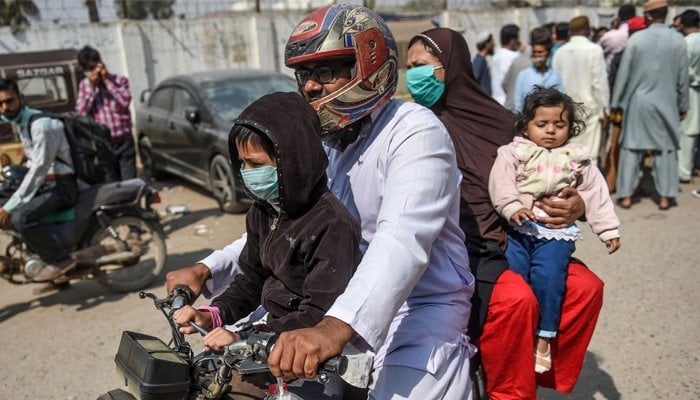
Soybean dust found in blood samples: report
A report compiled by the ICCBS at Karachi University found aeroallergen from soybean dust in blood samples collected from people who died.
According to the sources, the report mentioned that Spain had experienced a similar incident of soybean dust poisoning two years ago that affected numerous people in the country.
Senator Murtaza Wahab tweeted that preliminary reports submitted by experts at the Karachi University had claimed that the Keamari incident happened due to "overexposure to soybean dust".
Read also: KPT chairperson says gas did not leak from port or tankers
"Preliminary report has been submitted by experts at Khi Uni which suggests that Keamari incident happened due to overexposure of soybean dust which is known to have also caused similar incidents in other parts of the world. This soybean is in a shipment docked at Khi Port," he tweeted.
Panic grips port area
On Tuesday residents of the area surrounding Karachi Port, including Keamari, had protested against the rising death toll and the growing number of people affected by the health disaster.
The demonstrators — including traders and the neighbourhood's business community — blocked various roads and held a sit-in on key routes near Jackson Market and nearby areas, bringing traffic to a standstill. Traffic police said vehicles were being rerouted to alternative streets.
Traders Association Vice-Chairperson Muhammad Asif Khan said there had been no satisfactory efforts to ascertain the cause of and prevent further deaths from the alleged gas leak despite the incident being reported first some 48 hours ago.
People were seen wearing face masks, parents were not sending their children to the schools that remained open, and shop-owners were forced to close down their businesses and protest, while many others had decided to move their families away from the area.




